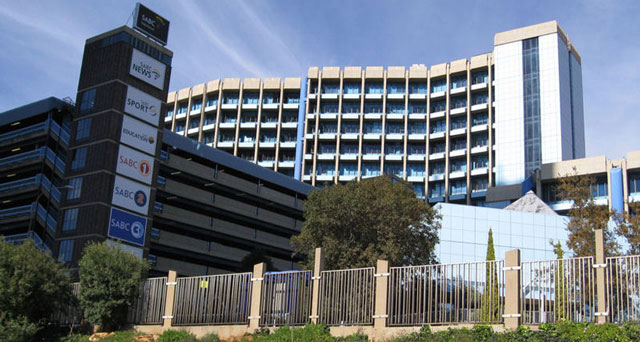
The SABC has followed free-to-air rival e.tv in asking communications regulator Icasa to allow it to stop broadcasting a news bulletin in prime time, the Democratic Alliance claimed on Monday.
The move follows a similar request by e.tv to shift its news bulletins out of prime time. Both broadcasters are required to broadcast news bulletins during their prime time windows.
DA MP Phumzile Van Damme said that the SABC has asked Icasa to allow all free-to-air broadcasters to be given the flexibility to decide whether to air news broadcasts in prime time.
“This means that, should it be approved by Icasa, free-to-air TV stations in South Africa will no longer be obliged to air news broadcasts during prime time,” Van Damme said.
But Icasa has rubbished the claim, saying the it has not received an application from the SABC.
Still, Van Damme said the party intends objecting when Icasa appears before parliament’s portfolio committee on communications on Tuesday.
“We will also request that Icasa, which has the constitutional obligation to regulate broadcasting in the public interest, spell out its position on the canning of prime time news,” she said.
Van Damme said the SABC, as South Africa’s public broadcaster, has an obligation in terms of the Electronic Communications Act to “facilitate news and educational programming in the national interest”.
“It is logical that this must happen during prime time, when most South Africans are watching TV,” she said.
“By the SABC’s own admission, over 12m people watch TV during prime time, with 79% of adults in urban areas, relying on free-to-air television as the most regular source of news. Only one in 10 rely on social media as a news source.”
She warned that allowing e.tv and the SABC to move news broadcasts out of prime time will “dumb down the South African populace”.
E.tv said earlier this year that had asked Icasa to amend its licence to allow it to broadcast its 6.30pm news bulletin outside of prime time.
Under its current licence conditions, the channel is required to broadcast at least two hours of news programming per day, of which at least 30 minutes must be packaged as a single programme and broadcast during prime time, said parent eMedia Investments in a statement in April.
“We are living in the digital age, and our viewers are consuming news on demand. The idea of relying on a single prime time bulletin has inevitably become antiquated and e.tv needs to be able to take this into account with regard to its overall programme scheduling,” said eMedia Investments group chief operating officer Mark Rosin.
“We have a long history of broadcasting quality news on e.tv, and while the prime time condition may have catered to our audience’s needs in 1998, when we first launched the service, it no longer makes sense now.”
The company said e.tv “remains committed to delivering a quality independent news service, and broadcasting local content that is in the public’s interest”. However, English news bulletins in prime time have seen a rapid decline in ratings across all free-to-air channels in recent years, it said.
“Having always met and often exceeded our news requirements, we have seen our English prime time news audience decline rapidly, despite numerous attempts to retool the bulletin,” it added.
Said Rosen: “As a commercial broadcaster generating most of its revenue in prime time, this presents serious revenue challenges, which ultimately lead to commercial viability challenges.”
He added that by moving English news bulletins out of prime time, e.tv will be able to “showcase content that has a significantly greater audience demand and curb current revenue losses”.
Icasa said on Monday that the application by e.tv is at the “post-hearing analysis stage and a decision will be taken as soon as all processes have been concluded”. — © 2016 NewsCentral Media




